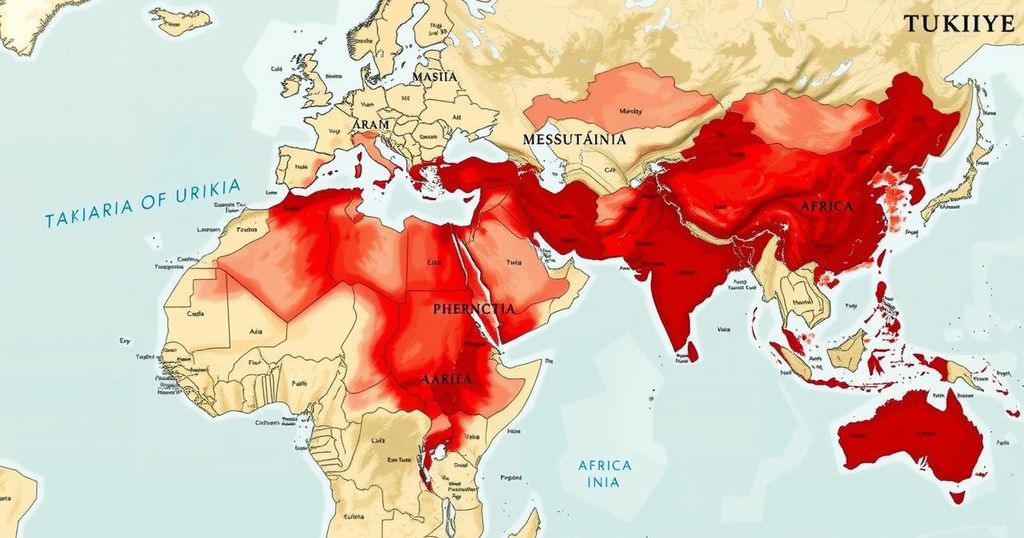The Ankara Declaration has successfully diffused tensions between Ethiopia and Somalia regarding their longstanding disputes and Somaliland’s calls for independence. This agreement highlights Türkiye’s growing influence in the Horn of Africa and addresses two major issues: the status of Ethiopian troops in Somalia and the diplomatic recognition of Somaliland. As geopolitical dynamics shift in the region, the deal’s success may strengthen Türkiye’s strategic position amid competing international interests.
The recently signed Ankara Declaration represents a pivotal diplomatic achievement for Türkiye, effectively easing tensions between Ethiopia and Somalia over their longstanding disputes. The agreement emerged against the backdrop of the Ethiopia-Somaliland controversy, which raised fears of regional instability reminiscent of past proxy conflicts. The Ankara Declaration addresses two critical issues: the status of Ethiopian troops in Somalia and Somaliland’s aspirations for international recognition as an independent entity. By facilitating this agreement, Türkiye seeks to assert its influence in the Horn of Africa amid increasing geopolitical competition and tensions.
The origins of the Ankara Declaration can be traced back to Ethiopia’s controversial Memorandum of Understanding with Somaliland, which granted the breakaway region diplomatic recognition in exchange for access to its port by Ethiopia, a landlocked nation. This agreement threatened Somalia’s sovereignty and led to Somalia’s vehement rejection of the terms, indicating potential military confrontations. The UAE’s vested interest in Somaliland’s development further complicates the dynamics, as it aims to establish military installations in the region, creating additional challenges for regional stability.
In the face of escalating tensions and geopolitical maneuvers, the Ankara Declaration has managed to stabilize initial hostilities by enabling Ethiopian troop presence in Somalia and securing a cooperative framework for negotiations on port access. The political will displayed by Türkiye has the potential to bolster security initiatives against insurgent threats in Somalia while gaining favor in the eyes of the international community. Türkiye’s historical ties and investments in Somalia further underline its strategic intent to cement a dominant role amidst competing interests from other global powers like the United States and China.
As the situation unfolds, the viability of the Foxhole negotiations and military cooperation remains contingent upon the resolution of grievances between Somalia and Somaliland. While the Biden administration supports the Türkiye-mediated arrangement, the potential for shifts in U.S. policy following the 2024 elections could influence the balance of power in this critical region. Ultimately, the Ankara Declaration signifies a crucial step toward stabilizing the Horn of Africa, aligning the humanitarian and security efforts that benefit all involved parties.
The geopolitical landscape of the Horn of Africa has become increasingly complex due to historical rivalries, national interests, and external influences. The Ethiopia-Somaliland agreement, which sought to redefine regional alliances, set off alarms in neighboring Somalia, prompting immediate backlash and potential militaristic confrontations. Türkiye’s role in mediating discussions between Ethiopia and Somalia highlights its ambitions to expand diplomatic reach and influence within the region amidst rival interventions from global powers such as the UAE, the U.S., and China. Moreover, the unrest surrounding Somaliland’s bid for independence raises pertinent questions about sovereignty and international recognition, which impact regional stability.
The Ankara Declaration marks a significant diplomatic initiative that has the potential to redefine relationships among Ethiopia, Somalia, and Somaliland, while positioning Türkiye as a key player in regional affairs. With potential U.S. policy shifts and ongoing rivalries, the success of this agreement will rely on the willingness of each party to pursue cooperative dialogue and mutual interests. The resolve displayed by Türkiye, combined with a politically cohesive strategy, may provide the framework for enduring peace and stability in the Horn of Africa.
Original Source: www.orfonline.org






